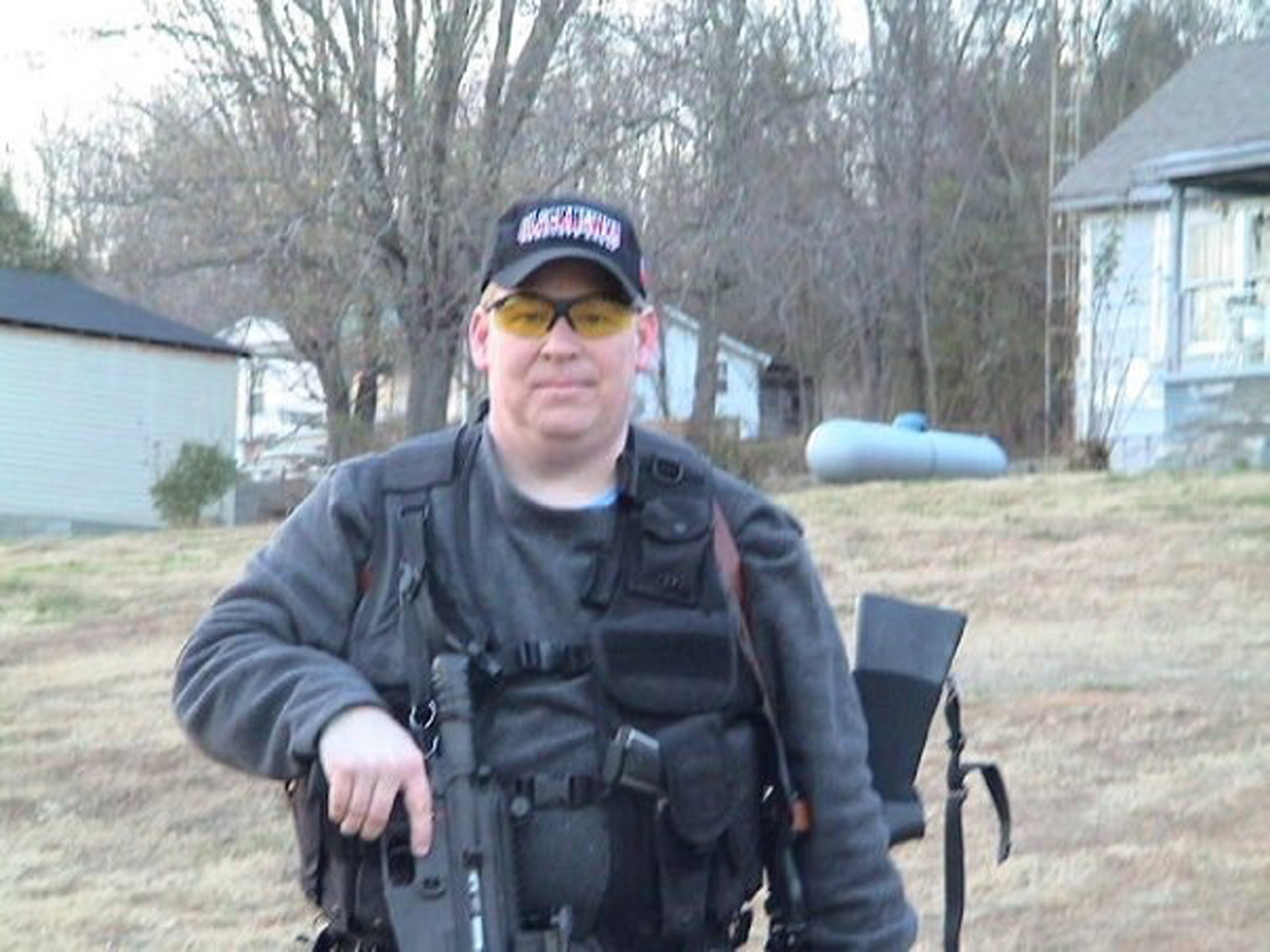Motion granted to suppress statements made by teen accused of murder
Published 7:18 pm Tuesday, February 21, 2017
Editor’s note: Stacy Coontz is now a private attorney with Helton, Walter & Associates in Danville. Landon Tingle, directing attorney with the department of Public Advocacy, is now the lead attorney on Trent Easterling’s case.
HARRODSBURG — Judge Darren Peckler has granted a motion to suppress statements made by a Harrodsburg teenager, while in the presence of law enforcement officers, who is accused of shooting another teenager last year .
Trenton Easterling, 16, was charged with murder in the first degree and robbery in the first degree, and stands accused of shooting and stealing from Tristan Cole on April 12, 2016. Cole’s body was found in rural Mercer County the following evening.
Easterling was arrested last year on April 14 by the Kentucky State Police. According to files obtained in the Mercer County Circuit Clerk’s Office, he was transferred to the circuit court to be tried as a youthful offender on May 9. He remains lodged in a juvenile detention facility because he is under 18, with a $1 million bond set.
Easterling was arranged on June 15.
On Sept. 13, Stacy Coontz, then an attorney with the department of public advocacy, filed a motion to suppress statements made by Easterling after he was brought in by law enforcement.
Memorandum to suppress
Coontz argued in the motion the teen was not read his rights, is entitled to due process, and that his “statements should be suppressed as a violation of these rights, as well as those granted to him by Sections Two, 11, and 17 of the Kentucky Constitution.”
Coontz argued in the memorandum in support of the motion that Easterling was in custody from the moment he left the Mercer County High School, which is where he was picked up by the Mercer County Sheriff’s Office and the Kentucky State Police, by permission of his mother, Melissa Easterling, to be brought to the Sheriff’s Office.
“This is, by testimony, a typical police cruiser: it has a gate or a cage separating the front and back seats, and the back doors cannot open. There is no physical way for Trent to exit this vehicle without officer assistance. He is in custody.”
The Easterlings were taken to the fiscal courtroom to wait until the could speak to deputies and officers. There was a deputy in the room with the two the whole time, the memorandum states.
“The court is to look at the totality of the circumstances to determine if Trent was in fact in custody.”
The teen was brought to the station by law enforcement officers — he was not allowed to transport himself and “the importance of this cannot be understated, Melissa Easterling was not allowed to transport him.”
Other students, according to the memorandum, were brought to the Sheriff’s Office, but were allowed to be transported by their parents and “none of them came in and sat with armed guards for two hours before being interviewed.”
“A reasonable 16-year-old with no experience at being interviewed by the police would not feel as though he could leave the interview room. And if he felt as though he could not leave the room, Trent was in custody.”
Coontz argued in the memorandum that the teen was not advised of his rights, something not required until a person is taken into custody.
“The officers seemed to believe that by telling Melissa Easterling, as Trent’s parent and custodial guardian, about the rights, that they effectively covered that for Trent. In other words, that they can either delegate the reading of the Miranda to a non-law enforcement officers, or that Melissa Easterling can waive her son’s rights. Neither is correct.”
The memorandum states that Melissa Easterling was told that the rights included that “they didn’t have to talk to police, they both could have an attorney, that [Ms. Easterling] could be present, and that they could stop the interview at any time,” but that no one told Melissa Easterling that “anything she or Trent said could be used against her or him in court.”
“She is not informed of that right, the fundamental right not to incriminate oneself, and thus did not relay it to Trent.”
The memorandum argued that, since not all rights were properly given to Melissa Easterling, she could not relay all of the correct information to Trent.
“Trent, therefore, could not knowingly, intelligently, and voluntarily waive his right to remain silent, because he was not advise of that right correctly, or that anything he said would be used against him.”
Coontz argued in the memorandum that “no one could waive Trent Easterling’s rights except him, and could not properly do so.”
“Kentucky Revised Statutes 610.060 states that whatever Court a child is before must ‘advise the child that these rights belong to him and may not be waived by his parents, guardians, or persons exercising custodial control.’”
“Trent Easterling could not have knowingly, intelligently, and voluntarily waived his rights.”
The memorandum also states that, even if the warnings given to Melissa Easterling were to count toward having given Trent Easterling his Miranda rights, he never gave those rights up, and there “exists no written or video waiver by Trent Easterling of his rights.”
The memorandum alludes to statements made by law enforcement officers who assumed Trent Easterling was listening as it was discussed by Melissa Easterling and her father, who had come into the room, too.
“We cannot simply assume a 16-year-old child understands these things.”
Commonwealth’s response
On Dec. 9, 2016, the Commonwealth’s Attorney Richie Bottoms filed a response to the motion to suppress, stating that the teen was never taken into custody prior to the statements he made, and therefore, officers were not required to read his Miranda rights to the teen.
“A suspect must be advised of his rights under Miranda if he is interrogated and is in custody or otherwise deprived of his freedom in a significant way. Miranda does not require an officer to give Miranda warnings to everyone questioned for information concerning a crime.”
“The relevant inquiry is how a reasonable person in the suspect’s position would have understood the situation.”
In response to whether or not Trent Easterling was in custody, the Commonwealth’s response cites “a reasonable person standard” which is “used to determine whether a person would believe he or she was or was not at liberty to stop an interrogation and leave.” Because Trent Easterling was not separated from his mother, was not handcuffed or shackled, and he was not restrained or restricted by law enforcement, the argument is that he would have “no reason to feel he could not ask to leave the fiscal courtroom and later, ask to depart from the interview room.”
“The defendant would have clear reason to believe his presence, especially with his mother at his side, was voluntary looking at the totality of the circumstances from the time he arrived at the fiscal courtroom until his mother chose to request that the interview be stopped.”
Easterling was arrested after the interview ended.
The Court’s response
On Feb. 14, 2017, Judge Darren Peckler granted the motion.
“Having reviewed the petition and response, and all relevant precedent, this court finds that the defendant in the instant action was not advised of his Miranda rights at the time of the April 14, 2016 interview with the Mercer County Sheriff’s office. As such, any statements made during that interview shall be suppressed.”
Easterling will appear in court at 1:30 p.m. on March 14, along with Zachary Lay, who is accused of two counts of tampering with physical evidence related to the case. Meagan Sims, charged with one count of tampering with physical evidence, will appear at 9 a.m. on March 14.
Follow Kendra Peek on Twitter, @knpeek.






